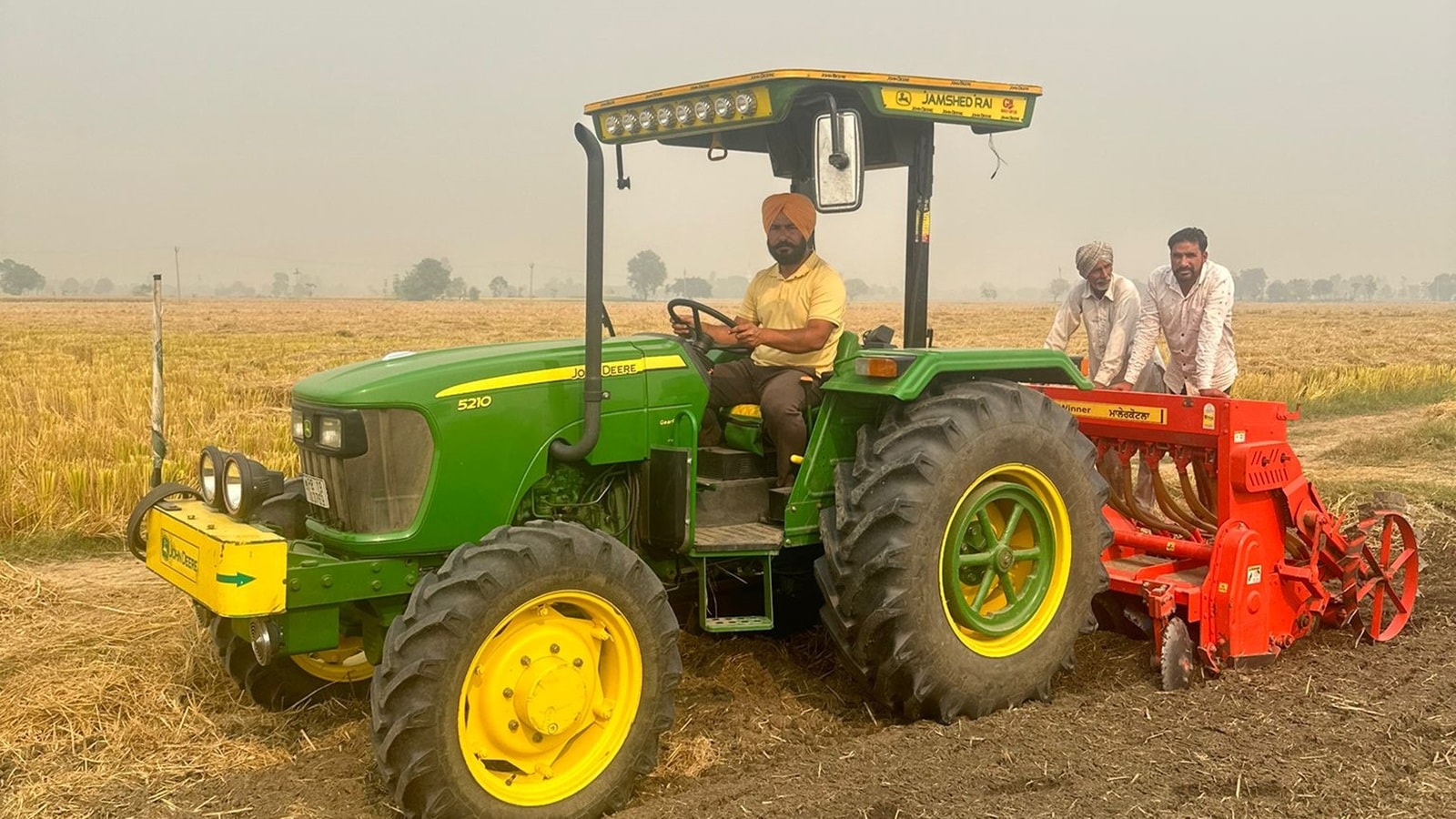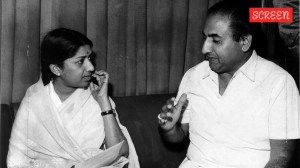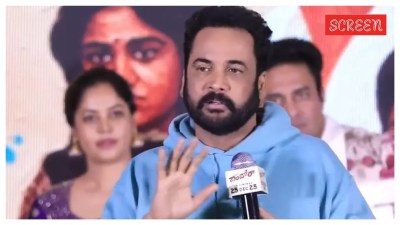Meet a farmer union leader who doesn’t burn his fields
Yield has increased but got no appreciation from the government, says Harmandal Singh of Barnala in Punjab
 Harmandal Singh busy in wheat sowing in his fields using super seeder in Jodhpur village of Barnala district. (Express Photo)
Harmandal Singh busy in wheat sowing in his fields using super seeder in Jodhpur village of Barnala district. (Express Photo) Farmer unions are in the eye of the storm after a group of Bharatiya Kisan Union (BKU) Sidhupur forcibly got a mound of paddy stubble burnt by a government official in a Bathinda village on Saturday. However, at the same time, Harmandal Singh, 34, of the Jodhpur village in Barnala, who is senior vice-president of BKU Dakaunda, Barnala district, is a farmer union leader who himself has not been burning stubble in his 35 acres of farmland for the past four years.
Harmandal said, “We do farming on our family land. My father and I live in the village, while my younger brother lives in Canada. It was in 2017 that I started thinking towards this direction once I had got a super straw management system installed in our combine harvester, and from 2019 onwards, we completely stopped burning the fields. It involves some effort from the farmer’s side but is not that difficult.”
He added, “The usage of urea in my fields has been reduced from 200 kg annually to 125 kg while fertiliser diammonium phosphate (DAP) has been reduced from 100 kg in 2017 to 60 kg only now. In addition to this, the yield of crops has increased in my fields by about 15 per cent. So if I spend around Rs 2,000-2,500 per acre extra in straw management, I save money on fertilisers and also get increased yield. So, it is a win-win situation for me. Above all, I feel happy following Guru Nanak’s teachings of Pawan Guru Paani Pita Mata dharat mahat (Air is Guru, water is the father, earth, the eminent mother).”
Harmandal, when asked that many farmer unions are facing criticism over protesting against the teams which stop stubble burning, said,” I stopped burning stubble out of own consciousness. Even as a farmer union leader as well, I always tell farmers to avoid burning of fields if we can. No farmer wants to burn fields. Their situations may be compelling them. We need to study the ground realities, too.”
He added, “I could afford to buy a combine harvester years ago, which is also given on rent for harvesting purposes apart from harvesting my crop. In 2017, I got super SMS installed on it worth Rs 50,000. I didn’t seek any subsidy, which is 50 per cent because the government priced the subsidised machine at more than Rs 1 lakh. Hence, even after subsidy, its cost would have been a few thousand more than the market price. So this is one problem. Later, I purchased a mulcher super seeder on subsidy while I take rotavator on rent for 3-4 days always. After harvesting the crop, I mulch the stubble inside the fields and leave it for 4-5 days to maintain the soil moisture.”
“Afterwards, if needed, I also use a rotavator—the land becomes ready for the wheat sowing. I could afford to buy machines and even managed to spend time, but not everyone can do that. Moreover, one big catch is that subsidised machines are highly overpriced and even after seeking a subsidy.. their rates are marginally less than without subsidy machines. Hence, the government need to check all the factors before just dictating their terms. I am doing it as I wanted to do it and could afford it as well. As people defame farmers for spoiling the environment, I did my bit.”
He said, “I don’t sell bales of paddy stubble to biomass companies but mulch them in soil. Moreover, most companies are not even coming to pick up these bales from the fields. Hence defeating the purpose of making all the efforts. Government must visit fields to study the ground realities.”
He added, “Despite all challenges, I am not burning fields and happy with the results. However, I have never got any appreciation from the agriculture department for this.”
Harmandal had sown paddy varieties PR 126, PR 122 and basmati types PUSA 1692 and 1847 in his fields and he was free from harvesting in the last week of October. Now, he is busy sowing wheat using a super seeder.







